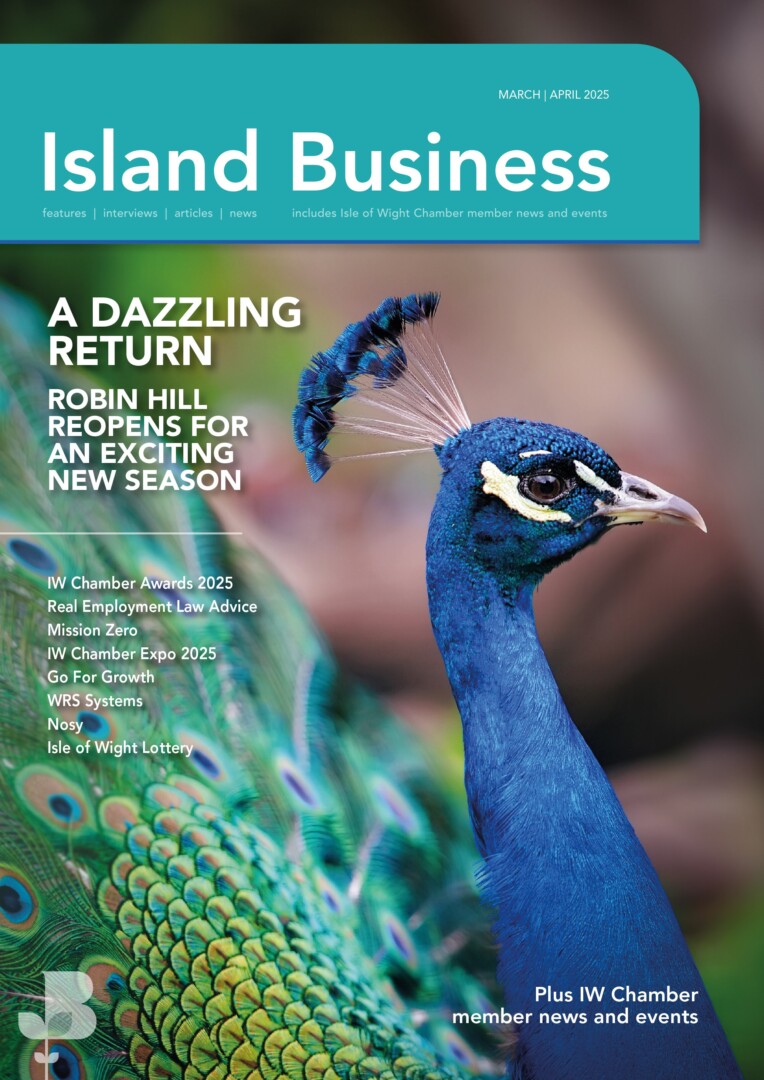Coming to terms with the refusal of Navitus Bay
by Ian Baylis, Managing Director, Seacat Services
Naturally the team at Seacat Services was disappointed when we heard about the planning refusal for the Navitus Bay wind farm. As an island-based offshore wind vessel operator, we have built a strong relationship with the project developers throughout the application process – supporting the project by taking local and national media out to the site and speaking in favour of the wind farm at the planning hearing in Cowes back in December.
At the hearing, I spoke about the wide-ranging opportunities Navitus Bay could create – not just for island renewables firms, but also for a whole range of local businesses. Aside from the significant number of permanent jobs that would have been created in the construction and operation of the site, approval of the project would have kick-started full-scale production at the MHI Vestas blade manufacturing facility near Newport and guaranteed 200 further jobs. The planned operational base, likely to be located at Yarmouth harbour, would have employed a further 100 or so people from the local area and generated in the order of £10m a year for the island.
Closer to home for us, in Cowes, about 150 people are already involved in building state-of-the-art crew transfer vessels for the offshore wind industry – jobs that depend on a steady flow of new boat orders. At Seacat Services alone, we employ over 60 people, many from the Isle of Wight, split between our administrative team and the vessel crew working offshore. What’s more, we’ve just seen the graduation of our first wave of apprentices, all of whom come from the island. This has been a hugely successful programme that we started this time last year. Over 200 young people applied for the scheme, demonstrating the huge local demand for opportunities in the offshore wind sector.
While we operate throughout the UK and Europe, there’s no doubt that the construction of a local project such as Navitus would have presented a great opportunity for our business and many others to also establish themselves in this exciting sector. Our experience servicing the wider offshore wind market means that we’ve seen first-hand the positive impact that the construction of a wind farm can have on local communities. This impact is visible well beyond direct job creation and opportunities for supply chain firms. I often say that, if you are in any doubt as to the economic impetus created, try and book a restaurant tonight in Cleethorpes, Barrow or Ramsgate. You’ll find your options limited – and that’s testament to the ripple effect felt by local businesses. Hotels, B&Bs, restaurants, hairdressers – you name it – all experience a significant uptick in year-round income.
So it’s a great shame that we’re now coming to terms with the refusal of the project. To put things in context, Navitus Bay is the first offshore wind farm in UK waters to be denied planning permission. Despite the inflated claims of Bournemouth council about the potential impact on tourism, it’s clear that the project hasn’t been refused on economic grounds – rather, it has fallen victim to a government U-turn in support for the UK renewables industry as a whole, and the voices of a small number of high-profile objectors.
However, while Eneco and EDF will now have to reassess their options and either launch an appeal or set their sights on other UK projects, there’s no doubt that the Isle of Wight will remain a world-class hub for offshore renewable energy in the years to come. The industry has established a strong foothold on the island, supported by organisations such as the Solent Offshore Renewable Energy Consortium (SOREC), which will ultimately leave us well placed to service sites just a little further afield in the wider UK and European offshore sector.
This opinion piece was first published in the October issue of Island Business magazine



